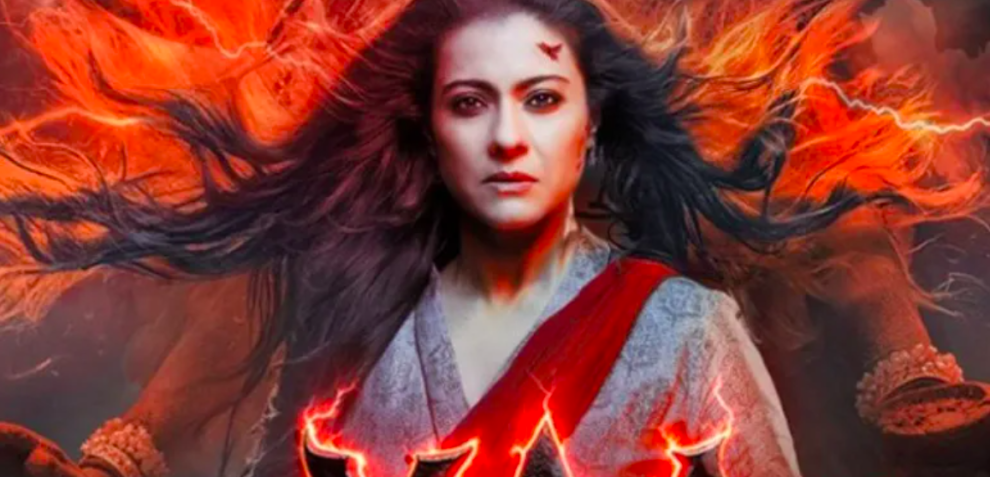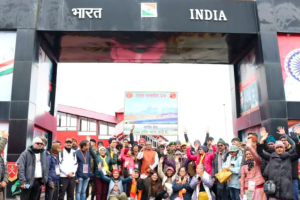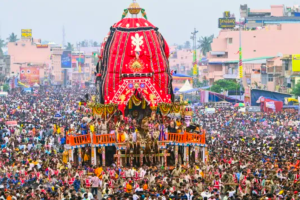Vishal Furia’s Maa doesn’t scream for attention — it whispers its horror, lets it simmer, and then unleashes it with mythic force. It’s a rare beast in Indian cinema: a horror film that draws power not from jump scares or gore, but from centuries-old legends, generational grief, and the ferocity of a mother’s love.
Set in the mist-shrouded village of Chandrapur, the film follows Ambika (Kajol), a grieving widow whose sorrow uncovers more than just emotional pain. Her husband’s sudden death acts as a trigger, awakening buried secrets and a malevolent entity — a Daitya from myth, fueled by blood and centuries of silence. As Ambika digs into her family’s past and the village’s shadowy lore, she stumbles into a cosmic battle between good and evil, framed through the lens of the goddess Kali and the demon Raktabeej.
Indraneil Sengupta in a brief but poignant role — give the cursed village of Chandrapur a lived-in, haunted feel. If Maa falters, it’s in pacing. The film’s slow-burn structure occasionally drags, especially in its middle act where certain subplots don’t fully bloom. The script, while conceptually rich, sometimes tries to juggle too much — mythology, trauma, village politics — and not every thread lands with equal weight. Yet, even with its imperfections, Maa never loses emotional focus.
Where Maa excels is in its ambition. It reimagines horror not as spectacle, but as reckoning — with history, silence, and inner demons. It doesn’t just borrow from mythology; it treats it as sacred text, breathing new life into it with modern urgency. Furia’s approach is confident, meditative, and refreshingly devoid of cheap thrills. This is horror with soul — and stakes far beyond survival.
In a genre often overrun by clichés and borrowed scares, Maa stands out. It’s bold, spiritual, and anchored by Kajol’s commanding presence. For viewers seeking horror that lingers not just in the dark, but in the heart and conscience — Maa is more than a watch. It’s a ritual.

























Add Comment